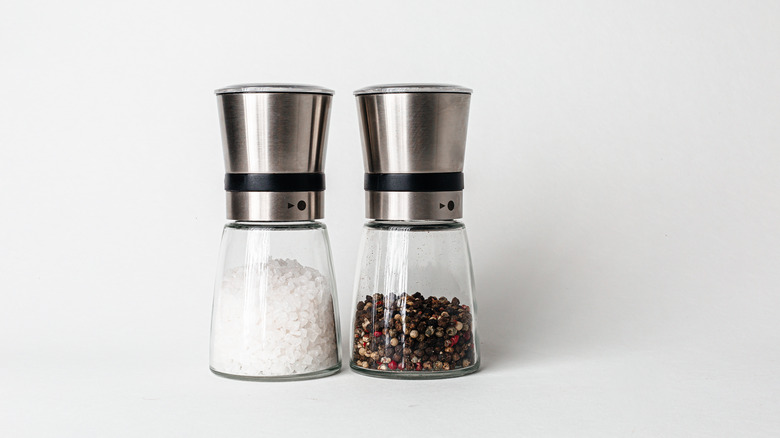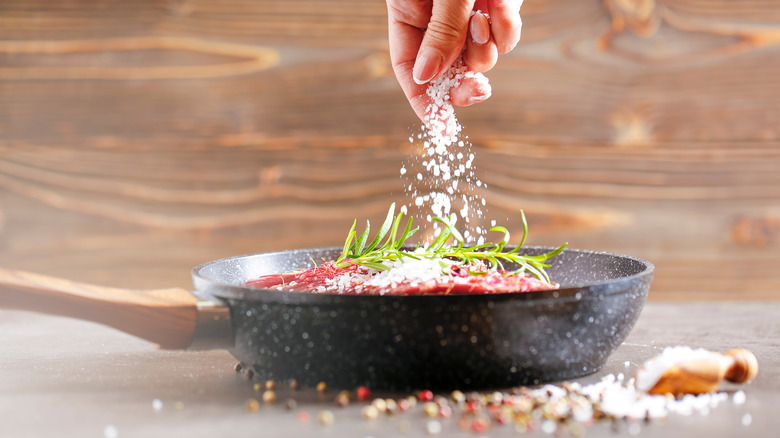Does Eating Too Much Salt Cause High Blood Pressure?
There are many health issues we try our best to avoid. One of those is high blood pressure, which can contribute to a variety of health concerns. According to Mayo Clinic, high blood pressure, or hypertension, can damage your arteries, contribute to heart disease, and lead to heart failure. It can also increase your risk of stroke, dementia, kidney failure, nerve damage, and more. Needless to say, it's a concern when your blood pressure is higher than normal.
Because this condition is so dangerous, it is important to know what causes it. There are many lifestyle choices that increase your risk of developing high blood pressure. According to WebMD, the exact causes of hypertension are unclear, but many risk factors have been identified. One of these is too much salt in the diet. Research has shown that an increased level of salt in the diet is strongly connected to increase blood pressure levels (Centers for Disease Control and Prevention). Fortunately, it has also been found that decreasing your salt intake often results in a quick decrease in blood pressure levels. If you have high blood pressure, consider decreasing your salt intake. Of course, you should speak to your doctor about the best ways to address your blood pressure levels as well.
Other dangers of eating too much salt
Adults are advised to consume no more than 2,300 milligrams of sodium per day (via US Food & Drug Administration). Many people eat more than this each day, and a large contribution to that is processed foods. Almost half of the sodium consumed by Americans comes from foods like pizza, burritos, soups, deli meats, and burgers. In addition to increasing your risk of high blood pressure, a diet high in sodium can cause water retention, increase your risk of heart disease, and lead to some types of cancer (via Healthline).
The FDA recommends some simple steps to help you monitor your sodium intake. Always read the nutrition labels when buying packaged foods and try to avoid foods that contain large amounts of sodium. Cook your own food when you can, as it can be difficult to find packaged foods that aren't high in salt. When you make your own food, try to season it with as little salt as possible. Experiment with other spices that add a great depth of flavor and have health benefits of their own. Buy fresh food when possible and be sure to rinse canned vegetables and legumes, which are often stored in sodium-filled water to keep them fresh. As long as you're mindful of your dietary choices, you should be able to maintain a low-sodium diet with ease.


